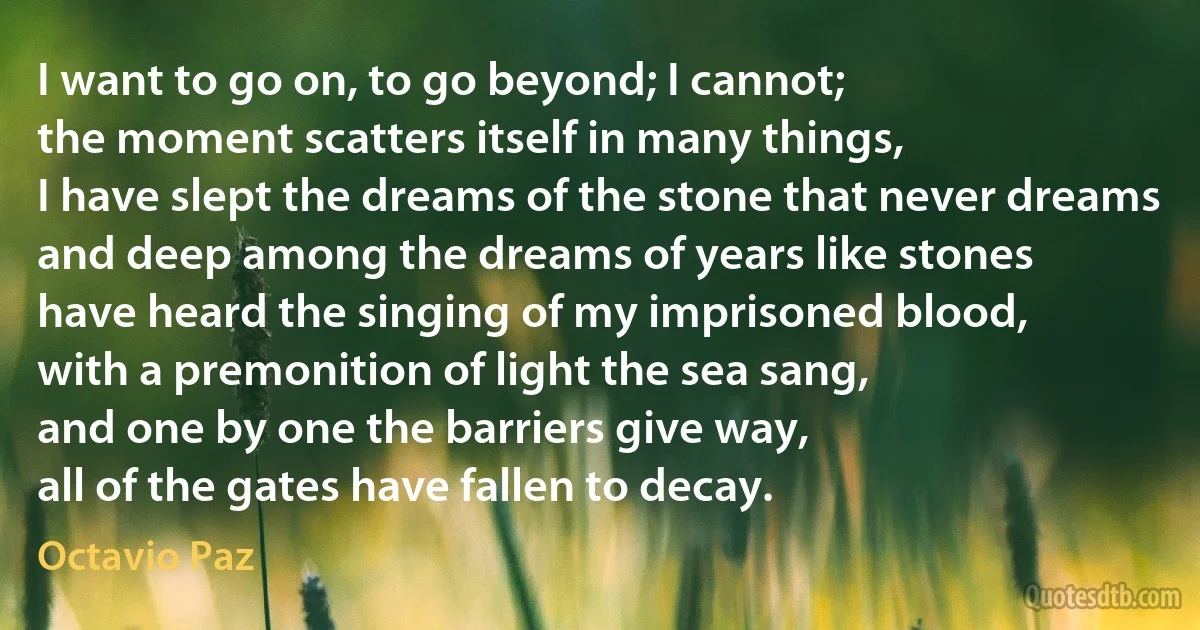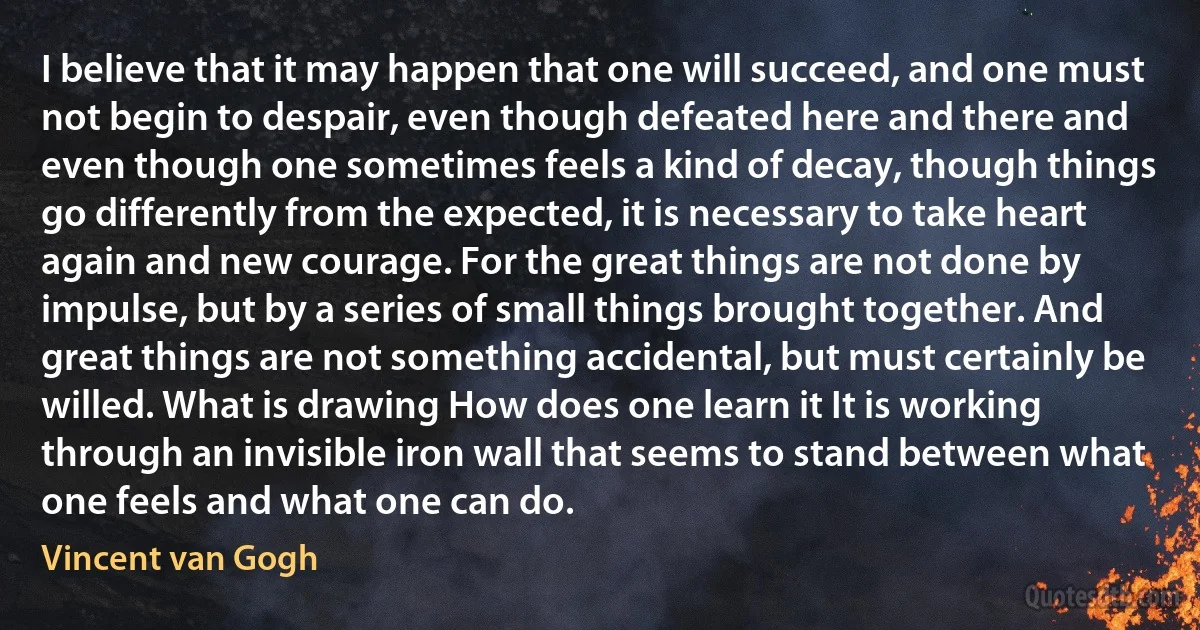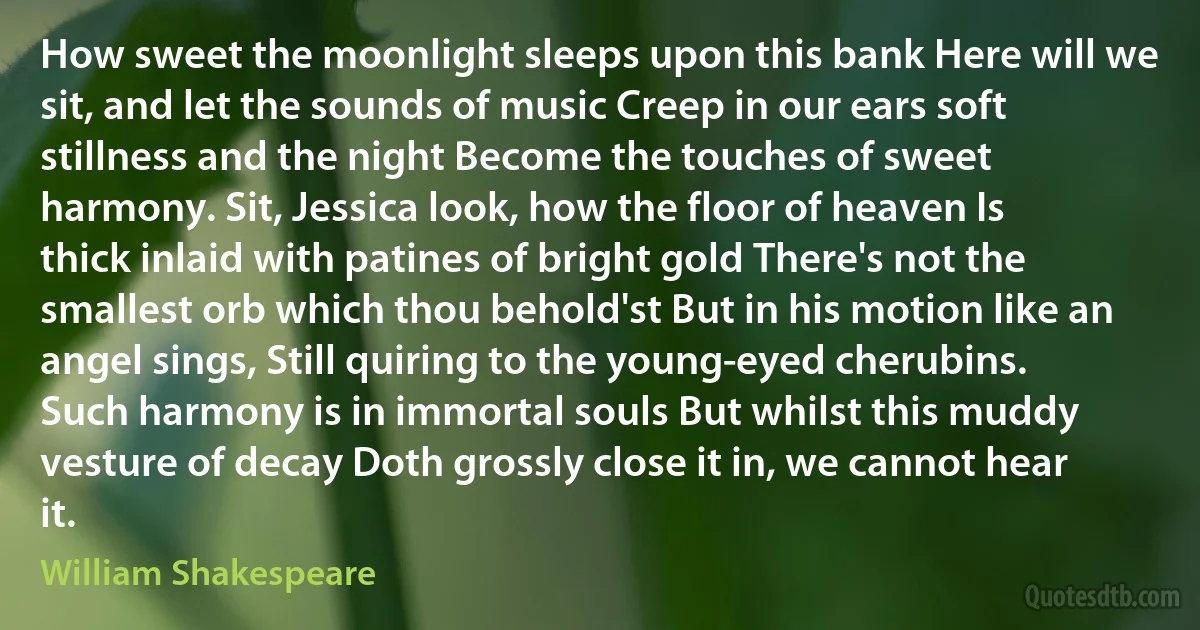Decay Quotes - page 13
‘Calcutta, for me, was a particular idea of the modern city, and I found it in many forms, works, and genres. ... by ‘modernity' I have in mind something that was never new. True modernity was born with the aura of inherited decay and life. ... if you look at paintings and photographs, and see old films of the city, you notice that these walls and buildings were never new – that Calcutta was born to look more or less as I saw it as a child. I'm not referring here to an air of timelessness; the patina that gave to Calcutta's alleys, doorways, and houses their continuity and disposition is very different from the eternity that defines mausoleums and monuments. It's this quality I'm trying to get at when I speak of modernity. ... modernity in the nineteenth century is indistinguishable from nature; perhaps it is nature – in some ways, the culvert, which has emerged from the rock, seems more of its place than the mountain itself.' [citation needed].

Amit Chaudhuri
The heterodox current in Judaism led by Jesus seems to have had no notion of an immortal soul, created by God and then infused into the body: immortality meant being raised from the dead in the body one had in life, then living for ever in a world without decay or corruption. In the Christian religion invented by Paul and Augustine, which was strongly influenced by Plato, immortality meant something quite different – a life out of time, enjoyed by the ‘soul' or ‘spirit' of the departed. How this Platonic immortality could preserve anything like the persons that once lived was not made clear.

John N. Gray
The book which the reader now holds in his hands, from one end to the other, as a whole and in its details, whatever gaps, exceptions, or weaknesses it may contain, treats of the advance from evil to good, from injustice to justice, from falsity to truth, from darkness to daylight, from blind appetite to conscience, from decay to life, from bestiality to duty, from Hell to Heaven, from limbo to God. Matter itself is the starting-point, and the point of arrival is the soul. Hydra at the beginning, an angel at the end.

Victor Hugo
It was not among the number of possibles, that animal life should be exempted from mortality: omnipotence itself could not have made it capable of externalization and indissolubility; for the self same nature which constitutes animal life, subjects it to decay and dissolution; so that the one cannot be without the other, any more than there could be a compact number of mountains without valleys, or that I could exist and not exist at the same time, or that God should effect any other contradiction in nature...

Ethan Allen
Our achievements speak for themselves. What we have to keep track of are our failures, discouragements and doubts. We tend to forget the past difficulties, the many false starts, and the painful groping. We see our past achievements as the end results of a clean forward thrust, and our present difficulties as signs of decline and decay.

Eric Hoffer
But it is no good using the tongs of reason to pull the Fundamentalists' chestnuts out of the fire of contradiction. Their real troubles lie elsewhere ... Fundamentalists are panicked by the apparent disintegration of the family, the disappearance of certainty and the decay of morality. Fear leads them to ask, if we cannot trust the Bible, what can we trust? The truth or falsity of evolution is a secondary matter. Rationalists must listen to the complaints of the Fundamentalists with a psychiatrist's "third ear", and respond to the more subtle messages.

Garrett Hardin
If there is one thing which a comparative study of religions places in the clearest light, it is the inevitable decay to which every religion is exposed. It may seem almost like a truism, that no religion can continue to be what it was during the lifetime of its founder and its first apostles.

Max Müller
At Orcus' portals hold their lair
Wild Sorrow and avenging Care;
And pale Diseases cluster there,
And pleasureless Decay
Foul Penury, and Fears that kill,
And Hunger, counsellor of ill,
A ghastly presence they:
Suffering and Death the threshold keep,
And with them Death's blood-brother, Sleep.

John Conington
Unfortunately, much of the post-Homeric poetry-called lyric poetry because it was usually sung to a lyre-was lost in the upheavals of subsequent centuries, especially in the depredations and decay that would follow the barbarian incursions into the Greco-Roman world in the fifth century A. D.

Thomas Cahill



